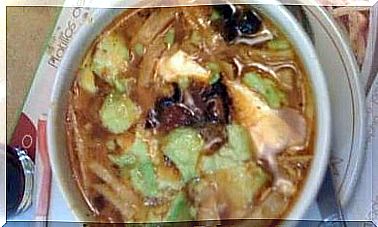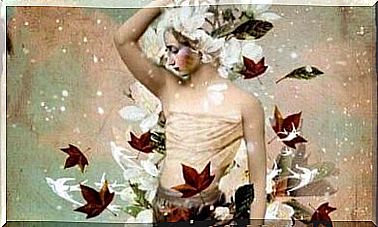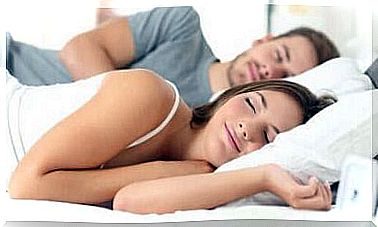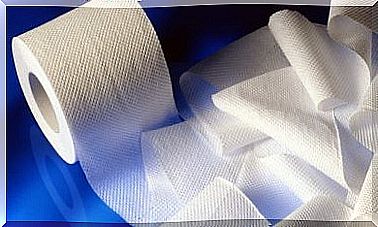The 5 Most Common Causes Of Night Sweats
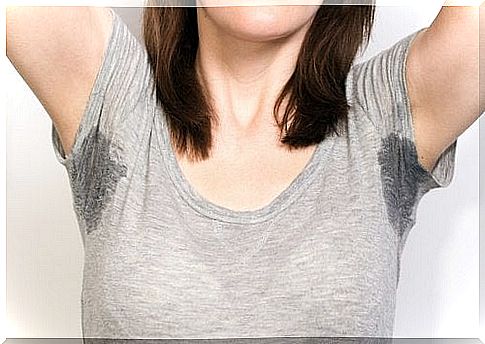
If you regularly wake up drenched in sweat, you know how unpleasant this can be. But did you know that night sweats can also be a symptom of a health problem?
Often the occurrence of night sweats is a side effect of your environment. It may be that you have the thermostat set too high or that you are wearing pajamas that are too warm. You may also be using blankets that are too warm.
At other times it can also be a sign of a deeper problem. If you often experience night sweats, it could also be caused by any of the following symptoms:
1. Obstructive Sleep Apnea Syndrome (OSAS)
People who suffer from this condition do not sleep well at night. This is because their airways are blocked. This ensures that there is no or too little air flow. One of the side effects of this condition is excessive night sweats.
But that’s not all. Other symptoms you may experience include:
- snoring
- Fatigue during the day
- Headache
- Bad mood
If you have one or more of these symptoms in addition to night sweats, it’s best to talk to your doctor.
If you are diagnosed with Obstructive Sleep Apnea Syndrome (OSAS), you need to treat it before it causes any more problems. Examples of these problems include heart disease and diabetes. The solution for most people is to use a device that helps you breathe at night. Using this device will help you sleep better and get rid of the other symptoms.
2. Night sweats due to menopause
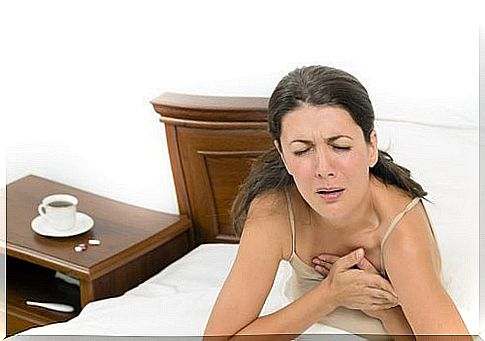
Menopause and your age cause fluctuations in the production of your hormones. This causes you to lose control of your body. These constant changes cause abnormalities in your body temperature.
Women in the menopause often wake up at night overheated. They also feel uncomfortable due to night sweats. Sometimes they wake up several times in the same night. These symptoms are also accompanied by other problems:
- Irregular Menstrual Cycle
- Dry skin
- Bad mood
The average age of onset of menopause is around 51, but you may experience night sweats years before you enter menopause. Some women start to suffer from this as early as their thirties.
Menopause is a normal part of a woman’s life. It doesn’t have to be ‘cured’. But if the symptoms become too disturbing, your doctor can suggest a few treatments. These can make you feel better as you move through this stage of life.
3. Fears

If you suffer from anxiety or chronic stress during the day, this can translate into night sweats.
It is good to see a therapist who can help you relieve the feelings of anxiety. This is especially true for fears of which you do not know what the cause is.
Many therapists use cognitive behavioral therapy. You learn to change your way of thinking. That way , you can identify and change the thoughts that are causing your fears or stress. But therapy alone may not be enough. If this is the case, you can consult other mental health professionals. They can evaluate your situation and recommend better treatment to combat your problem.
If you don’t want to start taking antidepressants or other medications, you can start with the following:
- Move more
- Leading a calmer, calmer life
- Following a balanced diet.
4. Some Diseases
You should not automatically assume the worst if you suffer from frequent night sweats, but it is important to see a doctor.
Night sweats often occur as a side effect of various conditions. These can be serious problems such as bacterial and viral infections. It could even be caused by some cancers.
If it is a more serious problem, night sweats attacks are usually accompanied by other symptoms. Only your doctor can find out exactly what is going on with a number of tests.
Treatment varies and depends on the condition you are found to have. In general, it can be treated with antibiotics or other forms of therapy.
5. Low Blood Sugar

Hypoglycemia, also known as low blood sugar, can be the cause of night sweats in diabetics. But this is not the only symptom. This problem can also cause excessive sweating during the day.
Low blood sugars are usually a side effect. They can be caused by problems with insulin or other medications used to treat diabetes.
If you regularly experience these problems, your doctor may recommend some lifestyle changes. These changes can reduce the chance of low blood sugar. For example, it may involve eating certain foods on a regular basis. It may also mean that you need to keep a closer eye on your blood sugar.
Night sweats can be very annoying, but you have to remember that it can be a signal that your body is giving you to tell you that something is not right. Be especially careful if you have frequent night sweats and note that the sweating is accompanied by other symptoms.
Talking to your doctor can help you figure out the root cause. This will quickly put you on the path to finding a solution.
